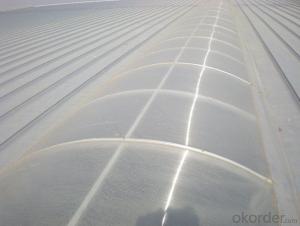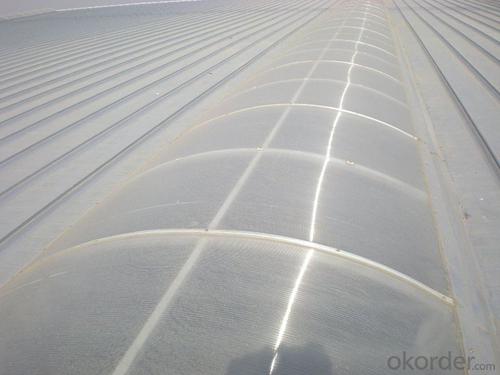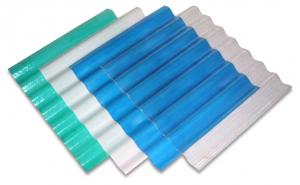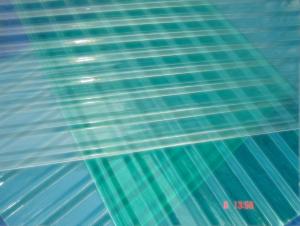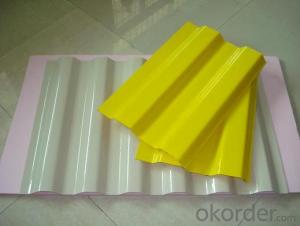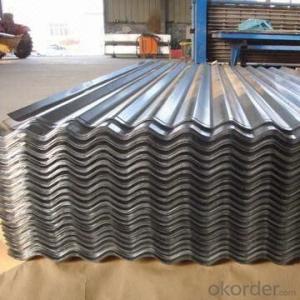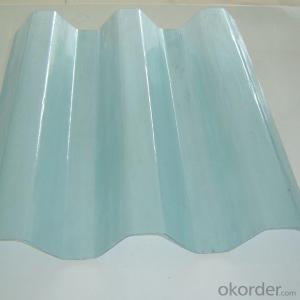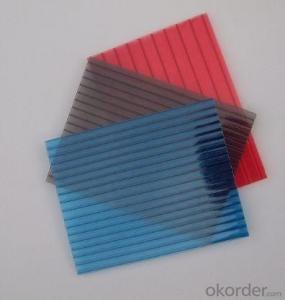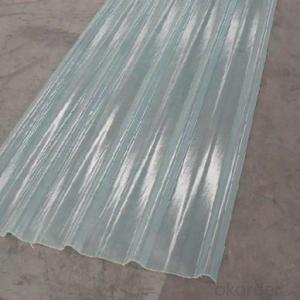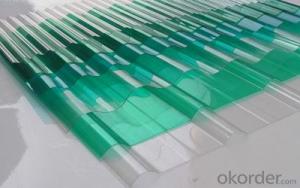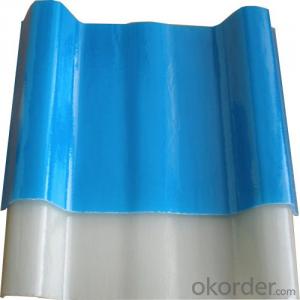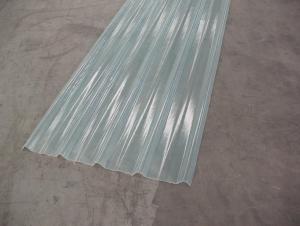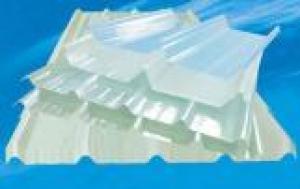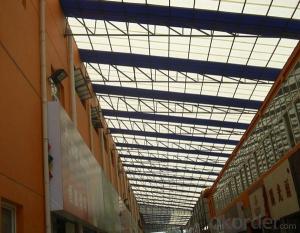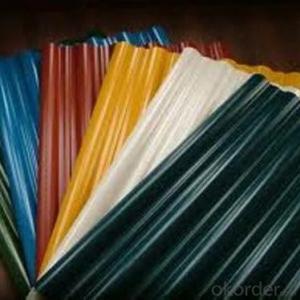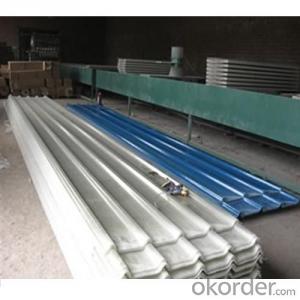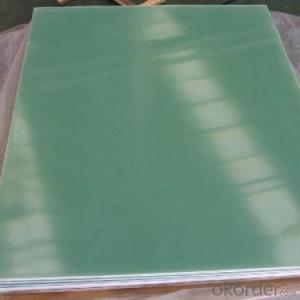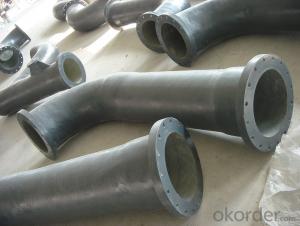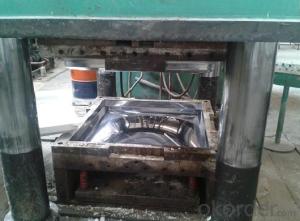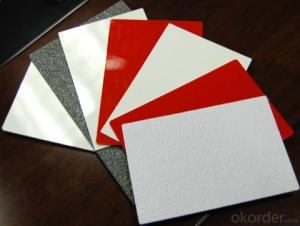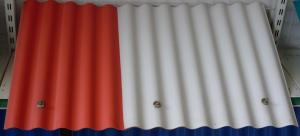High strength Transparent corrugated FRP/GRP panel FLAT
- Loading Port:
- China main port
- Payment Terms:
- TT or LC
- Min Order Qty:
- 100 kg
- Supply Capability:
- 100000 kg/month
OKorder Service Pledge
OKorder Financial Service
You Might Also Like
1,fibreglass sheet,FRP panels,fibreglass panel,corrugated sheet
2,transparent ,lightblue ,red and other color
3,Features:
1)High light transparency
2)Light weight and high strength
3)Corrosion and impact resistance
4)Anti-UV, anti-static, insulation
5)Accurate cross-section size
6)The length of the random cutting and more
7)Widely used in industrial plants, large-scale treasury markets, greenhouse, aquaculture and tourism
8)Used as roof, wall panel and more
9)Supports good lighting effect
4,Index :
Unit Weight: 1800g/m² 2400g/m² 3050g/m²
Nominal Thickness:0.8mm,1.0mm, 1.2mm 1.5mm 2.0mm, 2.5mm
Heat Resistance Limit: -60 to +130
Light Transmittance: 75%±2% ( light green) 53%±2% (cream white)
Anti- ultraviolet Rate: 99.9%
Tensile Strength: 100Mpa
Flexural Strength: 180Mpa
Cracking Elongation Rate: 1.9%
Pasture Hardness: ≥50
Thermal Expansion Coefficient: 2.2×10¯125px/cm/
Thermal Conductivity: 0.18w/m° k
Warranty:15 years
Item | Data | Reference | Item | Data | Reference |
Tensile modulus(Gpa) | 6.92 | GB | catalyst cold temperature | -52 | GB |
tensile strength(Gpa) | 103 | GB | heat distortion temperature | 172 | GB |
flexural modulus(Gpa) | 6.00 | GB | glass fiber content | above30% | GB |
flexural strength(Gpa) | 171 | GB | water absorption% | 0.18 | GB |
shear strength(Gpa) | 89.9 | GB | specific gravity | 1.48g/cm² | GB |
Barcol hardness | 47 | GB | Coefficient of thermal expansion | 1.5-2.2*10-5 | GB |
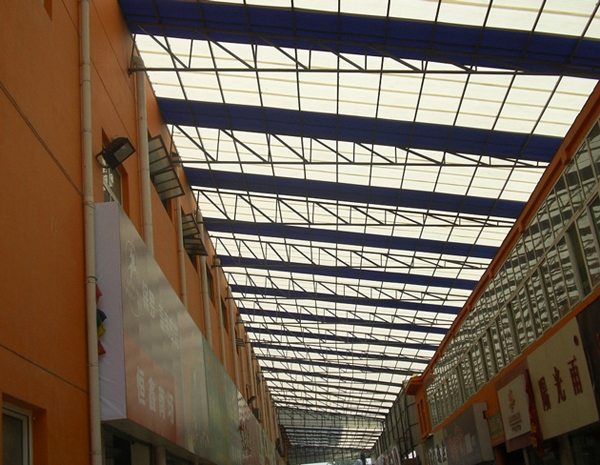
- Q: Can FRP roofing panels be installed on sloped roofs?
- Yes, FRP roofing panels can be installed on sloped roofs. However, it is important to ensure that the slope is within the recommended range for the specific FRP roofing panel being used. Additionally, proper installation techniques and precautions should be followed to ensure the panels are securely fastened and provide effective water drainage on the sloped surface.
- Q: Are FRP roofing panels eco-friendly?
- Yes, FRP roofing panels can be considered eco-friendly. They are made from a combination of fiberglass and resin, which are durable and long-lasting materials. This means that they require less frequent replacement, reducing waste and the need for additional resources. Additionally, FRP panels are lightweight, which reduces the energy required for transportation and installation. Furthermore, they are also recyclable, allowing for proper disposal and reuse at the end of their lifespan. Overall, FRP roofing panels offer several environmentally friendly features that make them a sustainable choice.
- Q: Do FRP roofing panels require any special maintenance?
- FRP (Fiberglass Reinforced Plastic) roofing panels generally do not require any special maintenance. However, like any other roofing material, regular cleaning and inspections are necessary to ensure longevity and optimal performance. Cleaning FRP roofing panels can be done with water and a mild detergent, or a non-abrasive cleaner. Avoid using harsh chemicals or abrasive materials that could damage the surface. It is advisable to check with the manufacturer for specific cleaning instructions as different coatings or finishes may require different cleaning methods. Regular inspections are essential to identify any signs of damage or wear. Check for cracks, loose fasteners, or any areas where the panels may have become dislodged. Repair or replace any damaged panels promptly to prevent further issues or water leakage. Additionally, it is important to keep gutters and drains clear of debris to allow proper drainage and prevent water pooling on the roof. This will help maintain the integrity of the FRP roofing panels and reduce the risk of leaks or structural damage. Overall, while FRP roofing panels are relatively low-maintenance, it is crucial to follow regular cleaning and inspection routines to ensure their longevity and optimal performance.
- Q: Can FRP roofing panels be used for both residential and commercial storage sheds?
- FRP roofing panels are suitable for both residential and commercial storage sheds. They are made of fiberglass reinforced plastic, a sturdy and lightweight material extensively used in construction. Renowned for their durability, resistance to corrosion, and ability to withstand severe weather conditions, FRP roofing panels offer remarkable strength. Moreover, their versatility and long-lasting properties make them ideal for various applications. Whether you require a shed to store personal belongings or for commercial use such as equipment or inventory storage, FRP roofing panels provide a dependable and economical roofing solution.
- Q: Can FRP roofing panels be used for outdoor seating areas or pavilions?
- Outdoor seating areas or pavilions can indeed utilize FRP (Fiberglass Reinforced Plastic) roofing panels. These panels are renowned for their durability, ability to withstand harsh weather conditions, and minimal maintenance needs. They are specifically engineered to endure exposure to UV rays, rain, wind, and temperature fluctuations. The lightweight composition of FRP panels ensures convenient handling and installation, making them suitable for various outdoor structures such as seating areas or pavilions. Installing them on a metal or wooden framework provides a protective cover that shields users from rain or excessive sunlight. Furthermore, FRP panels offer a wide range of colors, designs, and textures, allowing for customization to match the desired aesthetic of the seating area or pavilion. They can even be translucent, enabling natural light to filter through while still providing protection from the elements. Moreover, FRP panels possess resistance against rot, rust, and corrosion, guaranteeing their long lifespan and reducing the necessity for frequent repairs or replacements. Consequently, they prove to be a cost-effective solution for outdoor seating areas or pavilions, as minimal maintenance is required throughout their usage. To conclude, FRP roofing panels are an exceptional choice for outdoor seating areas or pavilions due to their durability, resistance to weather elements, ease of installation, and low maintenance requirements. They not only offer protection from the elements but also allow for customization and aesthetics, making them a versatile option for outdoor structures.
- Q: Can FRP roofing panels be used for both residential and industrial buildings?
- Yes, FRP (Fiberglass Reinforced Plastic) roofing panels can be used for both residential and industrial buildings. FRP roofing panels are a versatile and durable roofing material that can withstand harsh weather conditions, such as strong winds, heavy rain, and extreme temperatures. They are lightweight, making them easy to install and transport. Additionally, FRP roofing panels have excellent resistance to corrosion, UV radiation, and chemicals, making them suitable for industrial environments. They are also available in various colors and designs, allowing for aesthetic customization in both residential and industrial settings. Overall, FRP roofing panels offer a cost-effective, long-lasting, and low-maintenance solution for roofing needs in both residential and industrial buildings.
- Q: Can FRP roofing panels be installed on both residential and commercial train stations?
- Yes, FRP roofing panels can be installed on both residential and commercial train stations. The lightweight and durable nature of FRP panels make them suitable for various applications, including train stations of different sizes and purposes. Additionally, FRP panels offer excellent resistance to weather conditions and require low maintenance, making them an ideal choice for both residential and commercial train stations.
- Q: Can FRP roofing panels be used for sports stadiums or arenas?
- Sports stadiums or arenas can indeed make use of FRP (Fiberglass Reinforced Plastic) roofing panels. These panels have gained a reputation for their durability, strength, and ability to withstand harsh weather conditions, making them a suitable choice for such large-scale structures. They provide excellent protection against UV rays, corrosion, and impact, ensuring a long lifespan and requiring minimal maintenance. Furthermore, their lightweight nature can help reduce the overall weight of the structure and potentially lower construction costs. The versatility of FRP roofing panels allows for easy customization, enabling designers to create unique and visually appealing stadium or arena roofs. All in all, FRP roofing panels offer a practical and reliable option for sports stadiums or arenas, thanks to their performance qualities and long-term durability.
- Q: Do FRP roofing panels require a specific type of gutter guard?
- Yes, FRP roofing panels do require a specific type of gutter guard. It is recommended to use a gutter guard that is compatible with the specific installation requirements and dimensions of the FRP roofing panels. This ensures proper water drainage and prevents any potential damage or clogging of the gutter system.
- Q: Are FRP roofing panels suitable for outdoor entertainment areas or patios?
- Yes, FRP roofing panels are suitable for outdoor entertainment areas or patios. FRP, or fiberglass reinforced plastic, roofing panels are highly durable, weather-resistant, and provide excellent protection against UV rays. They can withstand various outdoor elements such as rain, wind, and sunlight, making them ideal for outdoor spaces like patios or entertainment areas. Additionally, FRP panels are lightweight, easy to install, and require minimal maintenance, making them a practical choice for enhancing outdoor spaces while ensuring long-lasting performance.
Send your message to us
High strength Transparent corrugated FRP/GRP panel FLAT
- Loading Port:
- China main port
- Payment Terms:
- TT or LC
- Min Order Qty:
- 100 kg
- Supply Capability:
- 100000 kg/month
OKorder Service Pledge
OKorder Financial Service
Similar products
Hot products
Hot Searches
Related keywords
